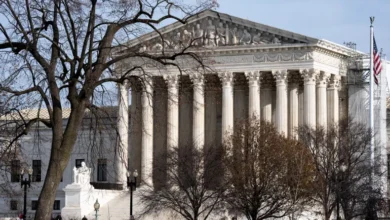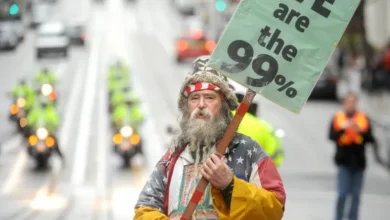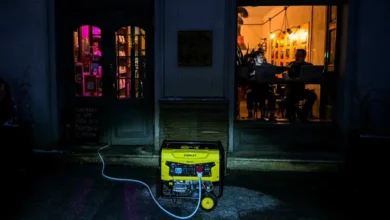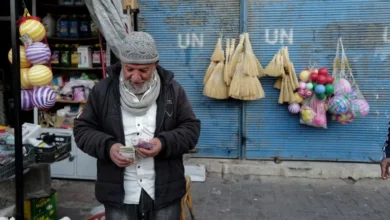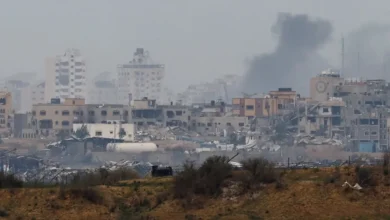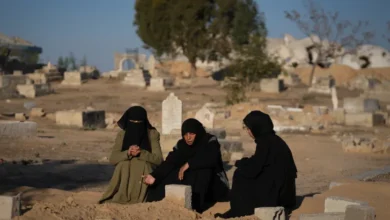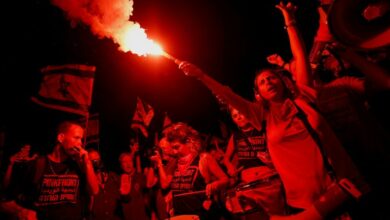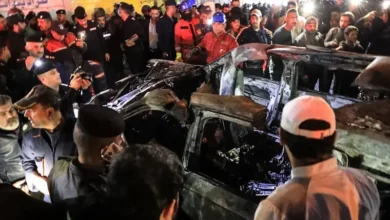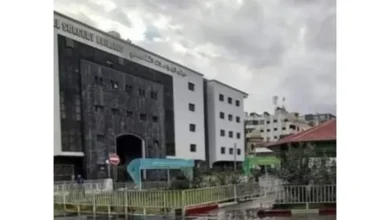‘We try to find life from death’: The volunteer lifesavers of Jenin
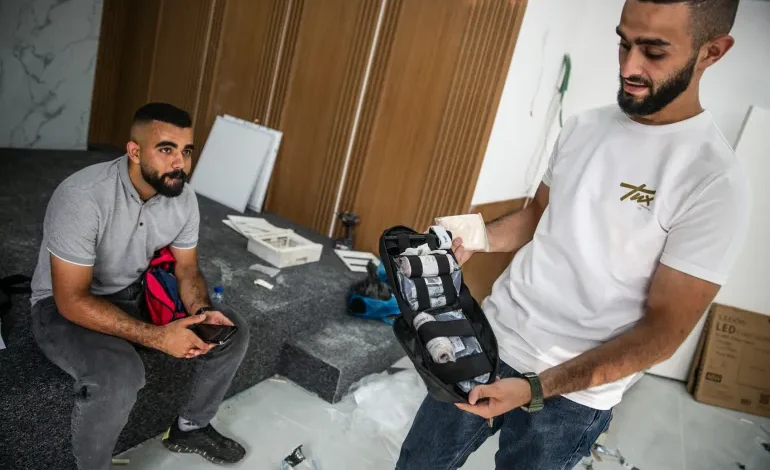
On April 4 last year, Ahmad Nobane was trying to reach an injured person in the Jenin refugee camp to administer first aid.
He had received messages on his mobile phone giving him the location of the victim and driven as far as he possibly could along the city’s narrow, destroyed streets. He had to get out and walk the final 300 metres (1,000ft) to reach the man lying on the ground.
Using tuk-tuks as makeshift ambulances
Nobane was just a newborn when his father was killed during the second Intifada in 2002, fighting the Israeli forces who were attacking their refugee camp in Jenin. Two years ago, he decided to join the volunteers in the camp who are dedicated to trying to save lives by training as first responders.
These days in Jenin, it’s hard to know exactly how many people may need their assistance on any given night. About 24,000 people are registered as living in this camp. But the frequent raids by Israeli forces have stepped up since the war in Gaza began in October, destroying homes and forcing many to flee.
Since then, Israeli soldiers and settlers have killed 536 Palestinians, including 131 children, in the West Bank and injured more than 5,500, including 800 children – more than one-third of them by live ammunition – according to the United Nations Office for the Coordination of Humanitarian Affairs (OCHA).
In Jenin alone, at least 148 Palestinians have been killed, 320 wounded and 540 detained by Israeli forces since October 7, according to local journalist Ali Samoudi, one of those trying to keep count amid the chaos.
Our Palestine is making a desperate bid to keep those numbers down. The grassroots organisation was born inside the camp and is led by Nidal Naghnaghiye, 52, a community leader who has spent 17 years in Israeli prisons. It is the group responsible for organising the first aid volunteers.
Working closely with the international organisation Doctors Without Borders, known by its French acronym MSF, the first responder volunteer team is headed up by Salah Mansour, 29, a lawyer. He is one of the 15 men and eight women who make up the group – all drawn from different professions and backgrounds and all now trained in first aid and ready to try to reach injured people wherever they might be.
It’s important to keep the volunteers equipped and trained, Mansour says, because “we do not limit ourselves to working in the field. We also reach patients’ houses if needed.”
Volunteers use MSF-supplied tuk-tuks as makeshift ambulances to transport the wounded, patients and first responders.
They have one primary goal: Keep the patients alive for as long as it takes to reach a hospital, such as the Jenin Government Hospital, which is just metres from the Jenin camp but might as well be many kilometres away because of the time it takes to get through Israeli military roadblocks. In December, MSF reported that Israeli forces had shot dead an unarmed 17-year-old inside the hospital compound and were preventing ambulances from leaving it. Paramedics and ambulance drivers were stripped and forced to kneel on the ground, MSF said in a post on X.With these sorts of obstacles, it’s all a case of making do inside the Jenin camp. The first aid volunteers work from a large hall that was once used by a civil society organisation but now serves as a training centre where the volunteers receive instruction from MSF on how to stem bleeding, safely move and lift victims and a host of other life-saving techniques. At the moment, all the training centre contains are a few bandages and some other medical supplies while volunteer tradesmen work in the corners carrying out routine repairs.
‘You are saving your brothers’
Inside the training centre, Nobani, who studies speech and language therapy at the Arab American State University of Jenin, has a welcoming smile and calm voice.
Several scars mark his body. They are visible on his back, legs and arms. Behind the first aid vest, there is a bullet embedded in his chest. That was from his first injury as a volunteer paramedic in April last year.
Just three months after that, another Israeli incursion took place in Jenin – one of the deadliest since the end of the second Intifada, the Palestinian uprising during the first half of the 2000s. The attack was launched with armoured vehicles, ground forces and air strikes on residential areas. Many houses in the camp were destroyed as well as a health facility run by the UN Relief and Works Agency for Palestine Refugees (UNRWA).
The assault lasted two days. At least 12 Palestinians were killed, including four children, and 100 were injured, 20 critically. An estimated 4,000 people fled their homes.
During that raid, Nobani was injured for the second time. Shrapnel from a nearby air strike ripped through the left side of his body while he and a colleague were trying to reach a mother and daughter injured by a drone strike.
The impact of the deafening air strike knocked them to the ground. He still has difficulty hearing.
Why does he keep putting himself through this? Nobani answers without hesitation and with conviction: “You are saving your sister, your brother, your family, your friends, your people.”
